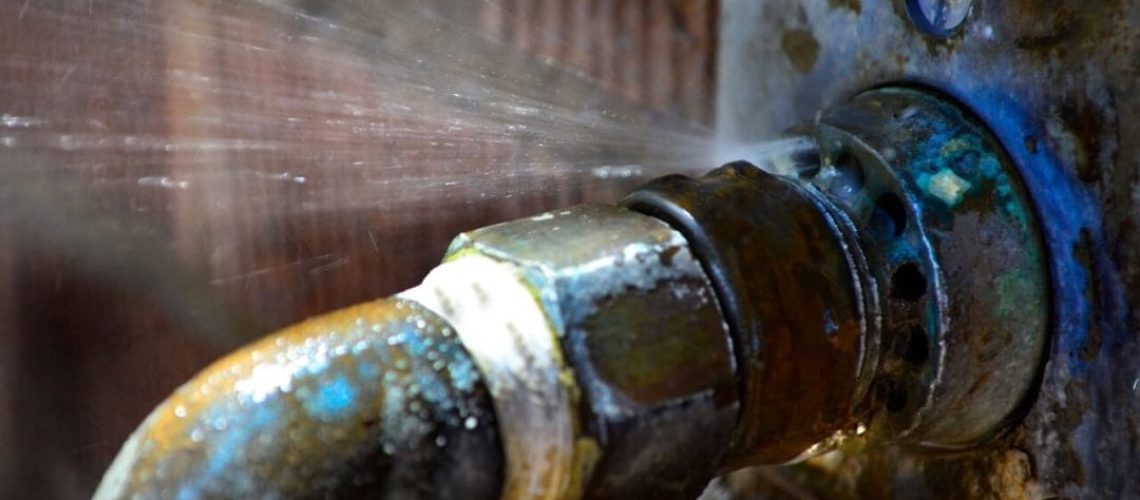Plumbing, the circulatory system of a home, ensures a seamless flow of water for daily activities. Yet, beneath the surface, plumbing issues can lurk, causing a variety of problems from minor annoyances to major disasters. Home inspectors, armed with a keen eye and plumbing expertise, play a crucial role in identifying and exposing common plumbing problems that may elude the untrained eye. In this comprehensive guide, we will delve into the most frequent plumbing issues discovered by home inspectors, emphasizing the importance of timely repairs for a watertight and efficient home.
1. Leaky Faucets and Fixtures
Issue: Wasteful Leaks from Faucets and Fixtures
Leaky faucets and fixtures are among the most common plumbing problems uncovered by home inspectors. These seemingly minor leaks can result in significant water waste over time.
Why It Matters:
Leaky faucets contribute to water wastage, increased water bills, and potential damage to surrounding areas. Home inspectors stress the importance of promptly repairing or replacing faulty faucets and fixtures to conserve water and prevent further damage.
2. Faulty Toilet Mechanisms
Issue: Running Toilets and Faulty Flushing Mechanisms
Running toilets, caused by faulty flushing mechanisms or leaks, are common plumbing concerns identified by home inspectors. Continuous running can waste a substantial amount of water.
Why It Matters:
Running toilets not only waste water but can also lead to increased utility bills. Home inspectors recommend addressing faulty flushing mechanisms promptly to conserve water and maintain the proper functioning of the toilet.
3. Clogged Drains and Pipes
Issue: Blockages in Drains and Plumbing Pipes
Clogged drains and pipes are frequent plumbing problems discovered by home inspectors. Accumulated debris, grease, or foreign objects can obstruct the free flow of water.
Why It Matters:
Clogged drains can lead to slow drainage, foul odors, and potential backups. Home inspectors stress the importance of regular drain maintenance and prompt clearing of blockages to prevent plumbing issues and maintain efficient water flow.
4. Water Heater Woes
Issue: Problems with Water Heaters and Temperature Regulation
Home inspectors often encounter issues with water heaters, including leaks, sediment buildup, or problems with temperature regulation. These issues can impact the availability of hot water and the efficiency of the heating system.
Why It Matters:
Water heater problems can lead to inadequate hot water supply, increased energy consumption, and potential water damage. Home inspectors recommend regular maintenance and timely repairs to ensure the proper functioning of water heaters and prevent disruptions in hot water supply.
5. Leaking Pipes
Issue: Water Leaks from Plumbing Pipes
Leaking pipes, whether due to corrosion, wear, or accidental damage, are common plumbing concerns identified by home inspectors. These leaks can occur in both visible and concealed pipes.
Why It Matters:
Leaking pipes can cause water damage to walls, ceilings, and flooring, leading to mold growth and structural issues. Home inspectors stress the importance of identifying and repairing leaks promptly to prevent costly damage and maintain a dry and structurally sound home.
6. Sewer Line Issues
Issue: Problems with Sewer Lines and Drainage
Issues with sewer lines, such as blockages, leaks, or tree root intrusion, are significant plumbing problems that home inspectors frequently uncover. Sewer line problems can lead to backups, foul odors, and potential health hazards.
Why It Matters:
Sewer line issues can result in unsanitary conditions and extensive damage to the home. Home inspectors recommend regular inspections and prompt repairs to address sewer line problems and ensure the proper drainage of wastewater.
7. Low Water Pressure
Issue: Inadequate Water Pressure in Plumbing Fixtures
Low water pressure in faucets, showers, or other fixtures is a common plumbing concern discovered by home inspectors. This issue can affect the efficiency of daily activities and indicate underlying problems in the plumbing system.
Why It Matters:
Low water pressure can impact the functionality of appliances, reduce the effectiveness of cleaning, and indicate potential leaks or blockages. Home inspectors stress the importance of identifying and addressing the root cause of low water pressure to ensure optimal plumbing performance.
8. Deteriorating Plumbing Fixtures
Issue: Wear and Tear on Plumbing Fixtures
Home inspectors often find evidence of deteriorating plumbing fixtures, including faucets, showerheads, and valves. Wear and tear can lead to leaks, reduced efficiency, and aesthetic issues.
Why It Matters:
Deteriorating fixtures can result in water wastage, increased utility bills, and compromised functionality. Home inspectors recommend replacing or repairing worn-out fixtures to enhance efficiency and prevent further damage.
9. Backflow Concerns
Issue: Risks of Backflow in Plumbing Systems
Backflow, the unwanted reversal of water flow, is a plumbing issue that poses contamination risks. Home inspectors frequently identify inadequate backflow prevention devices or improper plumbing configurations.
Why It Matters:
Backflow can introduce contaminants into the drinking water supply, posing health risks. Home inspectors stress the importance of proper backflow prevention measures to ensure the safety and purity of the water supply.
10. Inadequate Pipe Insulation
Issue: Lack of Insulation for Plumbing Pipes
Inadequate insulation for plumbing pipes, especially in cold climates, is a common concern uncovered by home inspectors. Poor insulation can lead to frozen pipes, bursts, and water damage.
Why It Matters:
Frozen pipes can result in burst pipes, water damage, and costly repairs. Home inspectors recommend proper insulation, especially in vulnerable areas, to prevent freezing and maintain the integrity of the plumbing system.
Conclusion
Plumbing problems, ranging from minor nuisances to potential disasters, require prompt attention to ensure the smooth operation of a home. Home inspectors, with their trained eyes and plumbing expertise, play a critical role in identifying and exposing these common issues. From leaky faucets to sewer line problems, addressing these concerns is paramount for maintaining a watertight, efficient, and structurally sound home. In the realm of homeownership, proactive measures, regular inspections, and timely repairs are key to mitigating the risks associated with common plumbing problems and ensuring the longevity and functionality of a home’s plumbing system.
For other issues that home inspectors commonly find, read our article, Uncovering a Home’s Dirty Secrets.


